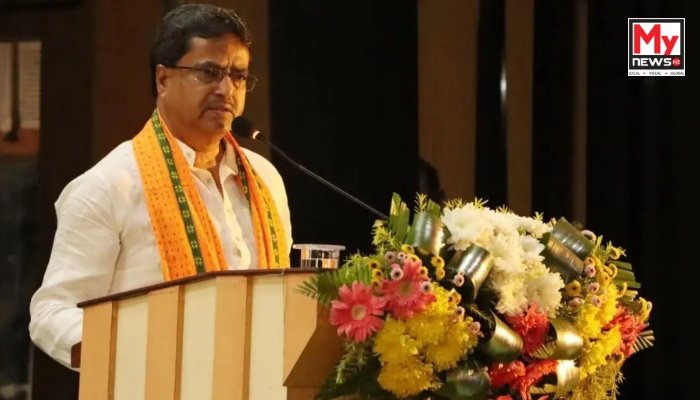Tripura Chief Minister Highlights Water Resource Development and Agricultural Growth at Conference
Agartala: Tripura Chief Minister Prof. Dr. Manik Saha announced on Tuesday that the state’s annual extractable dynamic groundwater resources have increased from 1.063 billion cubic meters in 2023 to 1.18 billion cubic meters in 2024. This surge in groundwater resources reflects the state’s ongoing efforts to enhance its water management systems.
Dr. Saha, speaking at the 2nd All India State Water Ministers Conference 2025 in Udaipur, Rajasthan, also revealed that the state government has set an ambitious target of achieving 80% irrigation coverage of its cultivable land in the coming years.
“Tripura heavily relies on agriculture for its economy, and the state government is prioritizing irrigation projects to boost agricultural productivity and enhance farmers’ incomes,” Dr. Saha stated. He also highlighted that 25% of the state’s total geographical area is cultivable, and 47% of that land currently benefits from irrigation.
The Chief Minister acknowledged the limitations posed by fast-flowing rivers and limited water storage capacity, making large-scale surface water irrigation projects unfeasible. To overcome this, the government has focused on developing rainwater storage structures and minor irrigation dams.
“We have identified 98 sites for minor irrigation projects covering 30,000 hectares, and work has already begun on 14 of them,” he said. He further mentioned that Tripura is fortunate to have abundant groundwater resources, thanks to the long rainy season and vast forest cover. Despite this, the state only utilizes 9.48% of its groundwater reserves, significantly lower than the national average. The state has launched deep tube well projects for both irrigation and drinking water, helping to tap into these reserves.
As part of the state’s commitment to water conservation, Dr. Saha outlined several ongoing initiatives, including rainwater harvesting, the renovation of traditional water bodies, watershed development, and large-scale afforestation efforts.
However, Tripura’s rivers, while a crucial source of water, also present challenges due to their rapid flow. Flooding and erosion have been significant concerns, particularly during the monsoon season. “Last year, Tripura experienced record-breaking rainfall, leading to unprecedented floods and widespread damage,” Dr. Saha recalled. In response, the state government has constructed 43 flood protection embankments and implemented anti-erosion measures along the riverbanks.
In light of these challenges, the Chief Minister emphasized that the government is working on developing a state-specific action plan with a long-term vision for 2047. This plan aims to address key water management issues, bridge demand-supply gaps, and integrate strategies to tackle the impacts of climate change.
Dr. Saha concluded by reaffirming the government’s commitment to integrated and sustainable water resource management for the benefit of Tripura’s people and its agricultural economy.
Read More: Nagaland: DNSU Issues Seven-Day Ultimatum for Health Centre to Vacate School Premises

